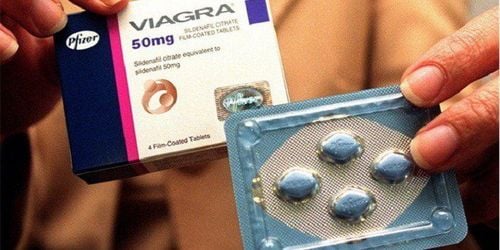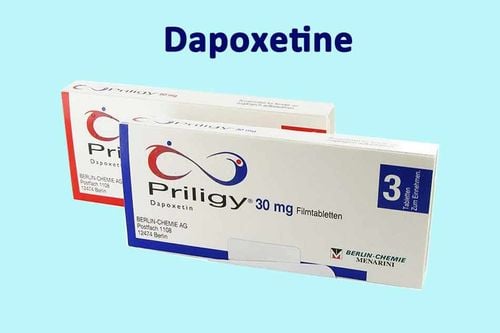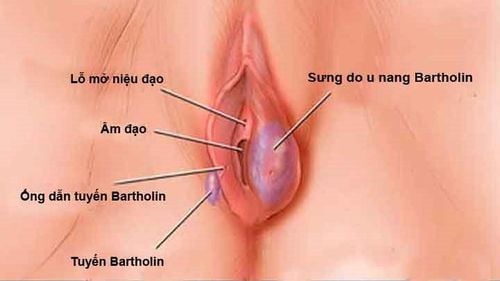This is an automatically translated article.
The article is professionally consulted by MSc Vo Thien Ngon - Urologist, Department of General Surgery, Vinmec Danang International General Hospital.
Sexual problems (or sexual dysfunction) refer to any problem at any stage of sexual activity that prevents a man or a couple from experiencing satisfaction. Studies show that sexual dysfunction is quite common, but it is a sensitive topic that is difficult to talk about. Fortunately, most cases of sexual dysfunction are treatable.
1. Causes of sexual problems in men
Sexual dysfunction in men can be the result of a physical or mental problem:Physical causes: Many physical and medical conditions can cause sexual dysfunction. These conditions include diabetes, cardiovascular disease, neurological disorders, hormonal imbalances, chronic diseases such as liver failure, kidney failure, and alcohol and substance abuse. In addition, the unwanted effects of certain medications, such as antidepressants, can affect sexual interest and performance; Psychiatric Causes: Includes work-related stress and anxiety, anxiety about sex ability, relationship problems, depression, and post-sexual trauma .
2. Who is prone to sexual problems?
Both men and women are affected by sexual problems, and it occurs in adults of all ages.Particularly in men, the most common sexual problems are ejaculation disorders, erectile dysfunction and decreased sex drive.
3. Ejaculation disorder
There are different types of ejaculation disorders in men, including:Premature ejaculation ; Delayed ejaculation, no ejaculation; Retrograde ejaculation. In some cases, premature ejaculation and no ejaculation are caused by psychological factors, including religious influences, lack of attraction from a partner, and past trauma. Premature ejaculation - the most common sexual disorder in men, often stemming from psychological causes of sexual performance. Certain medications, including antidepressants, can affect ejaculation because of nerve damage.
Retrograde ejaculation is common in men with diabetes who have nerve damage. Nerves in the bladder and bladder neck are damaged, allowing retrograde ejaculation. In addition, retrograde ejaculation also occurs after bladder neck or prostate surgery, after certain abdominal surgeries, and due to the use of certain medications (especially drugs for mood disorders). .
4. Erectile Dysfunction

5. Reduced sex drive
Decreased sex drive is a decrease in desire and interest in sexual activities. Decreased sex drive can be the result of physical or mental factors. It has been linked to low levels of testosterone in the blood. Low sex drive can also be caused by mental problems (such as anxiety, depression), certain medical conditions (diabetes, high blood pressure), certain medications, and due to problems in relationships.6. Diagnosing sexual problems in men
To diagnose male sexual problems, a doctor will ask about a patient's history, examine symptoms, perform a physical exam, and perform tests to find undetected problems.7. Treatment of sexual dysfunction in men
Many cases of sexual dysfunction can be corrected by treating the physical and mental causes:Drug treatment: Medications such as Cialis, Levitra, Staxyn, Stendra, or Viagra can help improve functioning. erectile dysfunction in men by increasing blood flow to the penis. Promescent is a drug to treat premature ejaculation; Hormones: Men with low testosterone levels can be treated with testosterone replacement therapy; Psychiatric therapy: Helping patients deal with problems that affect sexual activity such as anxiety, fear,...; Assistive Devices : Assistive devices can be implanted to help patients with problem solving; Communication and education: Raising awareness about sexual activity can help patients overcome anxiety and stress about their own abilities. The frank, open communication between couples will help break down barriers between two people.
8. Are sexual problems preventable?

Absolutely follow the treatment prescribed by the doctor; Limit alcohol use; Quit smoking; Treatment of emotional and mental problems such as stress, anxiety, depression; Communicate more with your wife or partner so that you can both understand each other's feelings, aspirations, and sympathize with each other's situation.
9. When to see a doctor?
Many men face sexual dysfunction from time to time. If the problem persists, it puts pressure on both the man and the woman and worsens the couple's relationship. Don't hesitate to visit your doctor to identify the problem and get the proper treatment.Please dial HOTLINE for more information or register for an appointment HERE. Download MyVinmec app to make appointments faster and to manage your bookings easily.
Reference source: webmd.com













